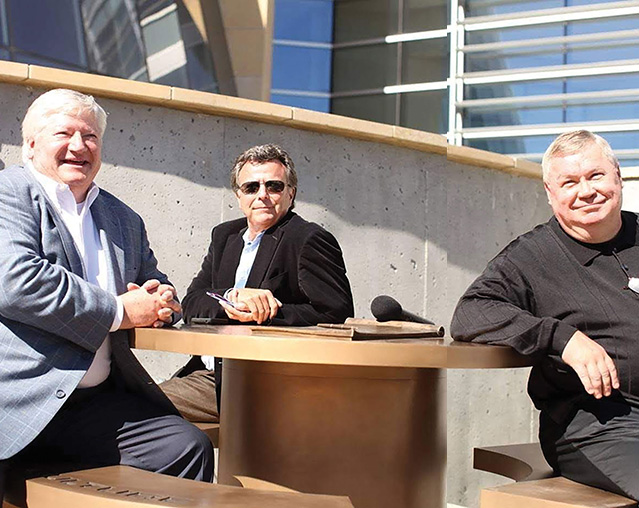


Cerner’s name stems from the Latin word meaning “to separate,” from the same root as the word discern. It’s discernment that led three young Kansas City consultants from a business idea to a multi-billion-dollar corporation.
In 1979 at a table in Loose Park, Neal Patterson, Cliff Illig and Paul Gorup were studying for the CPA exam and dreaming up ideas for a business. As consultants hired to write custom programs, they saw software’s potential to transform industries.
Originally naming their firm PGI & Associates, the co-founders said they didn’t find health care, but rather it found them. A contract to fix the billing system of a pathology practice in Kansas City led to the idea for PathNet, their first commercial software. PathNet was a success, and PGI was dropped in favor of a name that reflected their ambition – Cerner.
The company grew as hospitals and clinics embraced a digital future. Cerner benefitted from a focus on mission-critical applications, and a grand vision for developing a wholly integrated software suite – Health Network Architecture. In the 1990s, Cerner modernized and reinvented its platform as Cerner Millennium.
Today, Cerner grosses more than $5 billion in revenue annually and employs more than 25,000 employees, including more than 13,000 across its Kansas City campuses.
The trio’s entrepreneurial drive touches other ventures. Gorup left Cerner for a time to start Broadcast Data Systems, an industry leader in commercial electronic media monitoring. Patterson and Illig bought the Kansas City Wizards from Lamar Hunt in 2006 and rebranded them as Sporting KC. Even though they knew “nothing” about soccer, they would create the model franchise and stadium for Major League Soccer.
With Patterson’s passing in 2017 and Gorup and Illig’s retirement in 2015 and 2019, the next generation has taken the mantle. Still, the sense of discernment for a better future that started in Loose Park lives on.